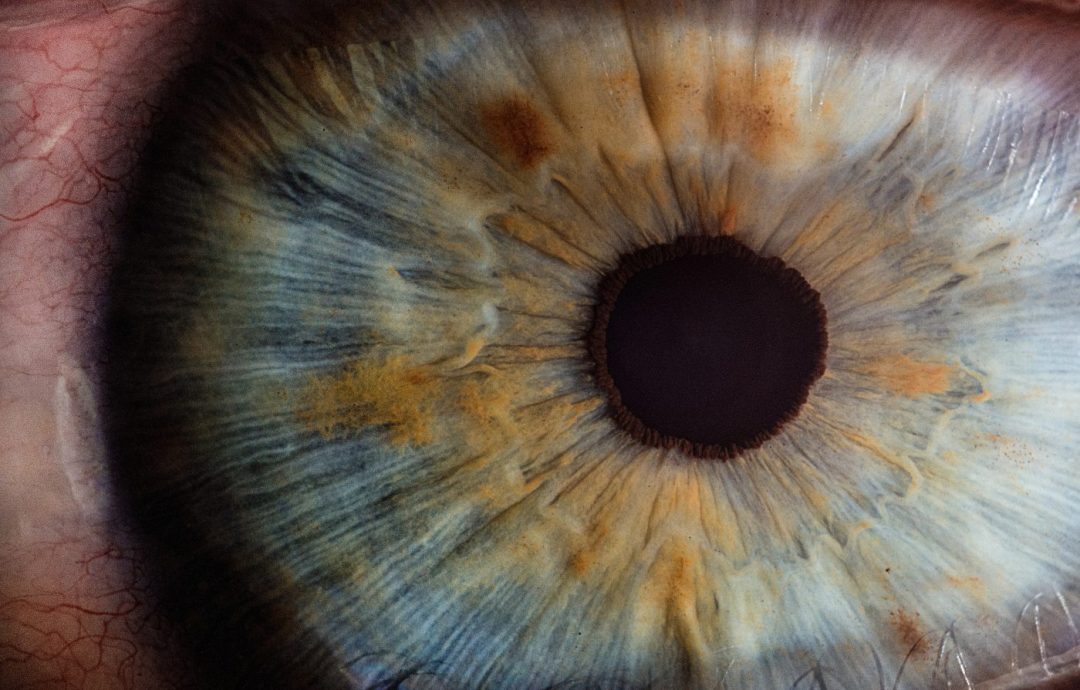Your eye has three receptors for perceiving red, blue, and green. The eye and brain then combine those colors to allow for approximately 300 different shades of color (e.g. orange, purple, yellow, and so on). This, for all intents and purposes, constitutes the world that we see.
What if we wanted to see the entire electromagnetic spectrum?
We’d need a whopping 75,000 receptors, which would enable us to see 7.5 million new and unimaginably different colors. Assuming our brains could process all of this information (they can’t), we’d be utterly overloaded by the visual stimulation and lapse into shock. (Interestingly, we’d also be unable to register the physical world around us.)
What if you could see at the atomic level? Quantum mechanics tell us this is an impossibility, primarily because its constituent elements – the quanta – behave in very bizarre fashion. For example, in order to see the electrons that make up the atom’s ‘outer ring,’ photons have to bounce off them. But the moment a photon meets up with an electron, the electron is radically changed. Which is just one of the many reasons you can’t ‘see’ at the quantum level.
These are but two examples of the seemingly countless ways existence fools us into thinking that it – and we – are real. Or looked at another way, though we see, we are nevertheless effectively blind to virtually all of life’s building blocks.
Yet virtually the entirety of humanity, today and across history, has taken itself to be real. We’ve bought into the illusion, breathe new life into it, keep the game going from one generation to the next.
Each and every day we wake to the world and our place in it, as if being a human being on planet Earth in the Milky Way galaxy was wholly expected. Of course I’m here! Where else would I be? What else could I be?
And then once that assumption is made – and boy is it a big one – the whole world and my place in it is born. Pause here, for a moment, and glance at the day’s news and see for yourself the insanity of the human world, our collective hubris surpassed only by the ignorance upon which it is erected.
We’re so busy marching to the programming drilled into us by the similarly programmed minds that came before us, that it never occurs to us to question it – any of it. If anything, we tenaciously cling to these fictions, fight and even kill over them. (When’s the last time you had a disagreement or argument where ‘I’ wasn’t at its center?)
Fortunately, the human world has always had its prophets and sages, the rare ones who, for reasons unknown, broke on through to the other side. Again and again, across the ages, these seers have urged us to turn our gaze inward and demand, “What am I?”
Because without that I, without that “I am that I am,” nothing else can exist. You, it appears, are the answer to the whole shebang – yourself, time, the universe, all of it. Without you, none of it can exist. And strangely enough, the same applies to me and every other soul.
Which is why, if I have any religion at all, it is this: to constantly, incessantly bang away at the question, What am I? If other thoughts arise and interrupt that reverie – as they of course do – the question then becomes, “To whom does this question arise?” Which naturally leads back to What am I?
That’s it, that’s the whole of my religion, my scripture in three words.
Why nothing else? For a long time I didn’t understand or fully appreciate Robert Adams’s advice to ask and ignore: as in, inquire into what am I, but disregard any answer that comes back.
Now I get it. The mind – that programmed machine – cannot be trusted. Anything it spits back has been learned, is just part of the programming, and as such must be OF the illusion rather than its creator. It is part of the invented, not the inventor.
So how will we know the answer to the question if the only instrument through which we have ever known anything is to be ignored? The answer, says Adams and others like him, is beyond mind, beyond words, cannot be explained or described. It only can be known.
So, if the world we think we know is, in fact, an illusion, it goes to reason that our job, if it can even be called that, is to try and know the only thing that truly can be known: ourselves.




